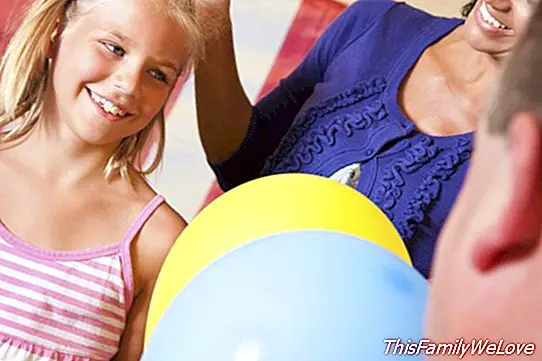How to learn to be educated: ideas by ages
Before a visit, when shopping or on any other occasion, we would all like our children to observe the golden rules of good behavior and were educated. However, the reality tends to be very different: children are children and, as such, spontaneous, sometimes selfish ... In addition, in this society, politeness is not precisely prevalent, so it is more important that we educate them from these ages to be polite and kind.
That something special that educated children have
Kind and educated children have a special something that makes them charming. If we help our children to acquire habits such as kindness and good manners, they will grow up with the necessary tools to cope with any situation, even the most committed ones. It is about that they approach others with delicacy, that they think about how their friends feel instead of cruelly joking with them, that they know how to give their time at home and with friends, that they know how to behave in any situation, that have acquired good manners when eating, dressing and washing ...
Children who have learned to be kind, to behave with proper manners they will be more optimistic, they will have more facility to win new friends and they will find it easier to keep them ... Why? Because they are able to spend time with them and are in tune with their needs: instead of wanting everything for themselves ... they are able to wait and offer, for example. And who would not like a friend like that?
Ideas to learn to be educated by ages

Up to 6 years old, kindness is achieved through the repetition of acts; although they do not have enough capacity to understand their deep reasons, now it is necessary to facilitate that they do kind, polite, delicate acts ... When they have the habit, and when the time comes to assume it, they will have all the facilities.
From birth to 18 months: learn what respect means
Julia, twelve months old, does not allow anyone to touch her small freckled doll; He even gets angry if his parents pick him up. The other day, a little friend thought of catching her and Julia got so angry that she became red with indignation.
Kindness is something so clearly important that surely there are many times that we will have felt ashamed when our little one has made public gala of not having her. Young children are too self-centered and impulsive. When, for example, a one-year-old child wants a toy, he wants it no matter how much his little friend who has it at that moment may like it.
However, since childhood, children are able to catch many clues on the fly: from birth onwards we can be kind to our little one, speaking pleasantly, delicately and paying attention to their gestures. Babies who are treated like this by their parents develop feelings of safety, which helps them treat others in the same positive and friendly way.
From 18 months to 3 years: say Thank you
Little Roberto was so spoiled that one day he received a candy from his aunt, when his mother told him: "What do you say, Roberto?" He replied with all cheekiness: "Ugly!".
Our little ones are not yet ready to learn kindness thanks to a speech or a sermon. But they can benefit from some lessons on the ground. For example, if we are ahead when it sneaks, when climbing on a swing, we have the opportunity to say: "I'm going to take you to the end of the queue to wait for the turn, just as everyone is waiting for it." These kinds of reminders, repeated from time to time, will help us learn to be nicer.
It will also help you, if we prepare you in advance before a visit to the grandmother's house explaining what we are going to do there, who we are likely to see, etc. In addition, we must bear in mind that children of this age really like to know what is expected of them, so we can specify some purposes, but only one or two each time: "Inside grandma's house, you must walk quiet and do not run, you have to talk quietly. "
From 3 to 6 years old: winning in a social sense
The other day the teacher told us that our Teresita gave a morrocotudo push to another girl because she tripped over her without wanting to. It's always lovely, but there are times ...
Preschoolers begin to have a certain social conscience, begin to internalize a sense of civics. But because of their lack of control and that they too can be too self-centered, they easily forget their good manners when they are angry, tired or hungry.
We must help them rise above their own interests, appealing to their growing ability to think about others."How do you think your friends can feel when you leave without saying goodbye", we could ask our son if he leaves quickly where he is playing.
As the social life of our preschooler begins to flourish, it is time to work the good manners on the phone. First, we can use a toy phone so you can practice the dialogues properly and speaking clearly. They should also practice how they should respond to the telephone and identify themselves when they receive a call. For safety, as well as education, we must teach them to respond: "Mom can not come to the phone right now," instead of saying that she is in the bathroom or outside the home.
Ricardo Regidor
Advice: Lucía HerreroPsychologist and family counselor




